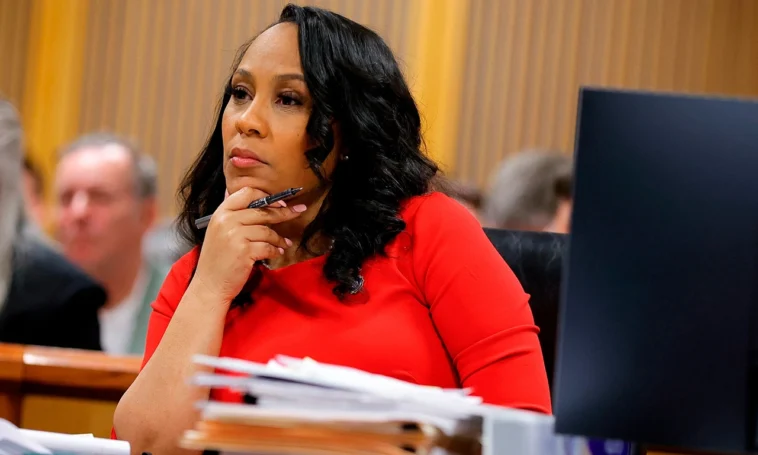Judge grants appeal to challenge decision.In the ongoing legal saga surrounding the Georgia 2020 election interference case, a recent ruling by Superior Court Judge Scott McAfee has further intensified the proceedings.
The judge’s decision has cleared the path for former President Donald Trump and other defendants to pursue an appeal regarding Fulton County District Attorney Fani Willis’ involvement in the prosecution, despite her romantic relationship with special prosecutor Nathan Wade. This development underscores the complexity and sensitivity of the legal landscape surrounding high-profile cases, especially those with political implications.
At the heart of the matter is the question of whether Willis’ relationship with Wade constitutes a conflict of interest that could compromise the integrity of the prosecution.
The defense has argued vehemently for Willis’ disqualification or the dismissal of the indictment, citing concerns about impartiality and the appearance of impropriety.
Conversely, Willis and her supporters have maintained that her professional conduct has not been compromised and that she is fully capable of fulfilling her duties as district attorney.
Judge McAfee’s ruling has injected a new layer of uncertainty into an already contentious legal battle. By allowing the defendants to appeal the decision regarding Willis’ involvement, the judge has extended the timeline of the case and opened the door to further legal maneuvering. This decision reflects the intricacies of the legal process, where procedural matters and jurisdictional issues can significantly impact the trajectory of a case.
Furthermore, McAfee’s ruling has implications beyond the immediate legal proceedings. The decision to green-light the appeal means that allegations of impropriety surrounding Willis’ relationship with Wade will continue to be scrutinized and debated in the public sphere.
This ongoing scrutiny has the potential to undermine public confidence in the prosecution and raise doubts about the fairness of the legal process. In high-profile cases like this, where political stakes are high and public interest is intense, the importance of upholding the principles of justice and impartiality cannot be overstated.
It’s worth noting that McAfee’s ruling also addressed the condition under which Willis could remain involved in the case. The judge stipulated that Willis could continue her role as district attorney if Wade were to resign, a condition that was promptly met when Wade stepped down from his position as special prosecutor. This decision reflects an attempt to mitigate concerns about potential conflicts of interest while allowing the legal proceedings to move forward.
As the case progresses, all eyes will be on the Georgia Court of Appeals, which will ultimately decide whether to hear the appeal regarding Willis’ involvement in the prosecution. The appellate court’s decision will have far-reaching consequences, not only for the defendants and the outcome of the case but also for the broader implications for prosecutorial integrity and the rule of law.
Judge McAfee’s ruling in the Georgia 2020 election interference case has set the stage for a pivotal moment in the legal proceedings. By allowing the defendants to appeal the decision regarding Willis’ involvement, the judge has ensured that the complexities of the case will continue to unfold in the courtroom and in the public eye. As the legal process unfolds, it is essential to uphold the principles of fairness, impartiality, and justice to ensure a resolution that reflects the integrity of the legal system.




2 Comments
Leave a Reply2 Pings & Trackbacks
Pingback:Fani Willis says despite attempts to stall Trump case, inevitable action approaches - Hard Knock News
Pingback:Fani Willis insists to continue playing race card despite judge's criticism - Hard Knock News
Join the Community and Be a Part of the Conversation
You must be logged in or registered to post a comment.